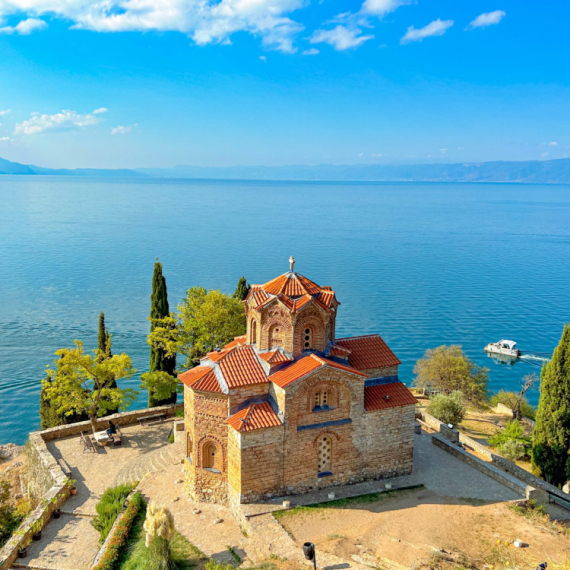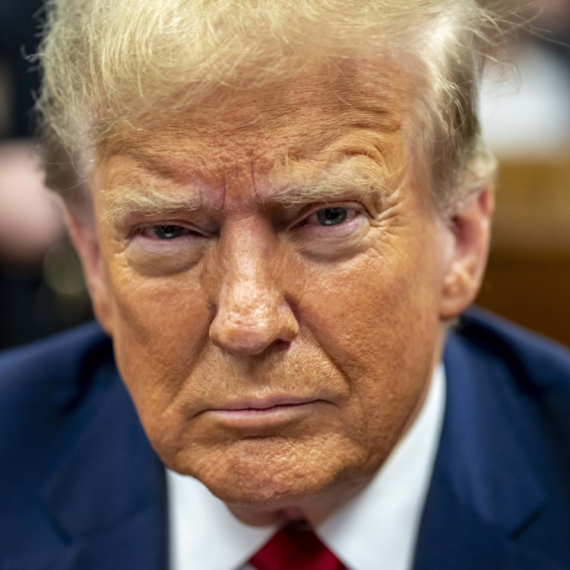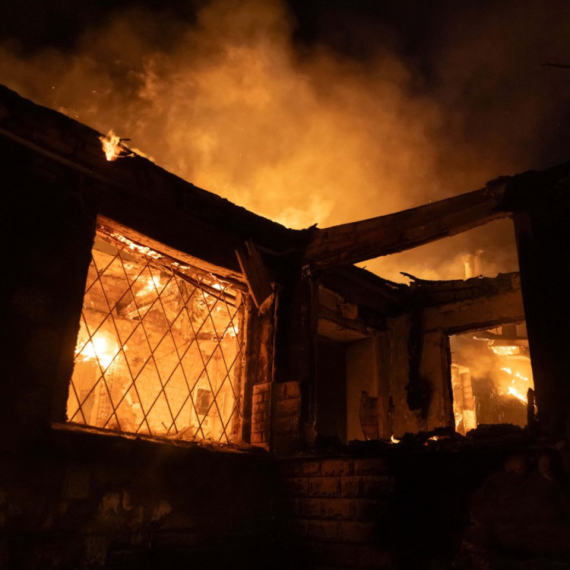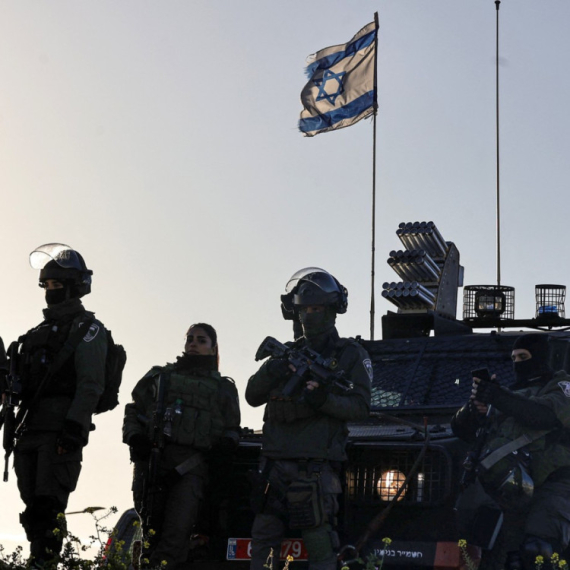Commission on murder of journalists holds first session
A commission set up to consider all the facts known so far in the investigations into the murders of journalists in Serbia today met for the first time.
Monday, 28.01.2013.
16:24

BELGRADE A commission set up to consider all the facts known so far in the investigations into the murders of journalists in Serbia today met for the first time. The commission was set up by the Serbian government last week, and is headed by B92 Editor-in-Chief Veran Matic. Commission on murder of journalists holds first session First Deputy PM Aleksandar Vucic, who had accepted the initiative and ordered the commission to be formed, took part in Monday's session in Belgrade. Vucic addressed the commission members to stress the importance of cooperation between journalists and officials of the MUM and security services, in order to exert control over the investigations, and ordered all archives to be opened and fully accessible. "This is of vital importance for the survival of the rule of law. Newspapers were full of reports about the murders, but we never got as far as an indictment. Nobody has the right to execute people in Serbia. Criminals must be held responsible," Vucic stated. Committee chair Matic stressed that unless the murders were solved, "we will be encountering a problem with ethics on all levels", and noted that the commission would work independently from the government. At the same time, by solving the cases, the security services would remove the burden of non-action or failure from themselves, while the society would gain from stronger institutions of the rule of law, and establish once again their trust in the institutions of the system. "It is the duty of all of us to join forces and achieve these goals. All the data will be centralized so that we can ascertain where the omissions occurred, and all this will be available to the public," Matic said, and thanked Vucic for his support to form the commission. Beside Matic, the commission members include UNS President Ljiljana Smajlovic, Branislav Jovanovic from Jagodina, Police Director Milorad Veljovic, UKP chief Rodoljub Milovic, Slavisa Softic (MUP), Zeljko Raseta (BIA), and Nebosa Vujicic (BIA). The committee will prepare its rules of procedure for the next session, scheduled for next week. It will also prepare letters to all relevant institutions requesting the documentation necessary for its work, and will sent them as soon as the decision to form the commission had formally taken effect. Today's meeting also decided to suggest to the government to extend the mandate of the commission to the investigation into the deaths of RTS workers who died during the NATO bombing. The session also decided to centralize all documentation coming from services and organizations that took part in investigations thus far, so that the members of the commission could have access to that data. The documents in question will serve to draft detailed analyses that will allow the public to learn about the findings of relevant institutions, and to ascertain the reasons why the investigations did not result in prosecution of perpetrators and those who gave them their orders. The commission also said that it would seek to include all the members of the interested public in its work who may help with their testimonies or documents in their possession, or by pointing out to the omissions made during the investigations conducted so far. The first session of the commission (B92) B92
Commission on murder of journalists holds first session
First Deputy PM Aleksandar Vučić, who had accepted the initiative and ordered the commission to be formed, took part in Monday's session in Belgrade.Vučić addressed the commission members to stress the importance of cooperation between journalists and officials of the MUM and security services, in order to exert control over the investigations, and ordered all archives to be opened and fully accessible.
"This is of vital importance for the survival of the rule of law. Newspapers were full of reports about the murders, but we never got as far as an indictment. Nobody has the right to execute people in Serbia. Criminals must be held responsible," Vučić stated.
Committee chair Matić stressed that unless the murders were solved, "we will be encountering a problem with ethics on all levels", and noted that the commission would work independently from the government.
At the same time, by solving the cases, the security services would remove the burden of non-action or failure from themselves, while the society would gain from stronger institutions of the rule of law, and establish once again their trust in the institutions of the system.
"It is the duty of all of us to join forces and achieve these goals. All the data will be centralized so that we can ascertain where the omissions occurred, and all this will be available to the public," Matić said, and thanked Vučić for his support to form the commission.
Beside Matić, the commission members include UNS President Ljiljana Smajlović, Branislav Jovanović from Jagodina, Police Director Milorad Veljović, UKP chief Rodoljub Milović, Slaviša Softić (MUP), Željko Rašeta (BIA), and Neboša Vujičić (BIA).
The committee will prepare its rules of procedure for the next session, scheduled for next week. It will also prepare letters to all relevant institutions requesting the documentation necessary for its work, and will sent them as soon as the decision to form the commission had formally taken effect.
Today's meeting also decided to suggest to the government to extend the mandate of the commission to the investigation into the deaths of RTS workers who died during the NATO bombing.
The session also decided to centralize all documentation coming from services and organizations that took part in investigations thus far, so that the members of the commission could have access to that data.
The documents in question will serve to draft detailed analyses that will allow the public to learn about the findings of relevant institutions, and to ascertain the reasons why the investigations did not result in prosecution of perpetrators and those who gave them their orders.
The commission also said that it would seek to include all the members of the interested public in its work who may help with their testimonies or documents in their possession, or by pointing out to the omissions made during the investigations conducted so far.



























































Komentari 0